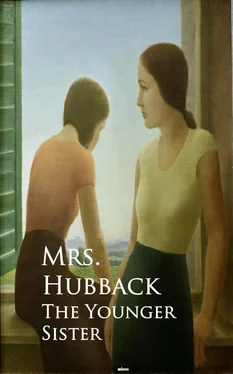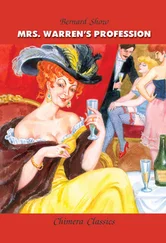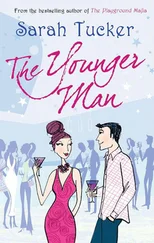all
manœuvring dangerous."
"Besides," continued Miss Osborne, changing the ground of her reasoning, "Emma Watson, in herself seems a nice conversable girl, and, I assure you, at Osborne Castle, when there is no party in the house, such an acquisition is not to be despised."
"Why, Rosa, you never spoke a word to her—how can you tell that she is conversable."
"Not from my own observation of course; but I can form some judgment from what Mrs. Willis and her brother have told us—"
"And your brother, too," said Miss Carr, with some emphasis; "he seems to be taking some trouble to make her acquaintance."
"Who, Osborne? yes, he admires her, I believe; but his is a very passive sort of admiration, not in the least likely to lead to any vehement results."
"Well, I can admit your being sometimes lonely as a motive for wishing for a country friend; but, if I do not think you make the selection with your usual judgment, you must forgive me."
"I cannot imagine why you entertain such a prejudice against poor Emma Watson, Fanny; you cannot, surely, be jealous of her—are
you
in love with Mr. Howard—come—confess!"
"No," replied Miss Carr, coloring deeply as she spoke.
The result of this conversation was that visit and invitation already related. Lady Osborne made no objection to her daughter's proposal. Her card-table would be then certain to be filled, and Mr. Howard would have no excuse for absenting himself. Her pride did not stand in the way on this occasion—she considered every individual not belonging to the peerage to be so much beneath her, that the gradations amongst themselves were invisible to her exalted sight; and a step or two, more or less, made no difference. She had not, therefore, the smallest inclination to oppose the admission of new spectators to her glory—and rather rejoiced in the idea of the envy and admiration to which her jewels, her equipages, and her general style of grandeur would give rise.
With these amiable motives, she allowed her daughter to do as she liked, and the only one who seemed at all discomposed by the circumstance, was Miss Carr, whose remonstrances, however, proved quite ineffectual.
CHAPTER IX.
To return to the party at the parsonage, whom we left discussing the point, Elizabeth suddenly turned to her sister and exclaimed,
"By the bye Emma, you have given no opinion on the subject—yet you are as much interested as the rest of us. What do you think of going—should you like it?"
"Yes, I think I should," replied Emma honestly and boldly. "I like what I have seen of Miss Osborne better than I expected, and really have rather a curiosity to see the inside of the Castle."
"Ah, Emma, I am glad you have come down from your proud indifference, and condescended to be curious like the rest of us," cried her sister.
"Did you think I affected indifference, Elizabeth?"
"I suspected it. For my part I have no scruple in owning my wishes, and should like extremely to surprise Tom Musgrove by my acquaintance with the manners, amusements and ideas prevalent in Osborne Castle, of which he talks so much."
"Then I may conclude it a settled affair," observed Mrs. Willis; "and Charles shall run up to the Castle with the note immediately. That shall be his share of the amusement."
At six o'clock the party started from the Parsonage. Elizabeth in a flutter between curiosity and fear, which made her pleasure in the undertaking rather doubtful to herself. Emma would have thought more about it had she not been engrossed with meditations on the change in Mr. Howard's manners, which rather perplexed her. He had been different all the afternoon from what he had appeared in the morning; his prolonged absence from their company seemed unaccordant with Charles's declaration of his haste to join them, and there was a coldness in his tone when he addressed
her
, quite at variance with his former warmth and frankness. This pained her; she was constantly fancying that she had done or said something to lessen herself in his esteem, but she could not imagine what it was. Occupied with these thoughts she scarcely noticed the grandeur of the Hall, the magnificent staircase, the elegance of the ante-rooms as they approached, and was only roused from her reverie by the overpowering blaze of light in the drawing-room. Lady Osborne was alone in the room, seated on a sofa from which she did not rise to receive them, but graciously extended her thin and richly jewelled hand to Mrs. Willis, and bowed courteously to her companions.
Overawed by her near approach to such magnificence, Elizabeth drew back rather hastily, and after nearly upsetting Emma by inadvertently treading on her toe, she dropped into the chair which seemed most out of sight, and endeavoured to recover her breath and composure.
Lady Osborne desired the other ladies to find seats, and then observing that Mr. Howard likewise drew back, and seemed to meditate a retreat to one of the windows, she dropped the elegant screen she had been holding in her hand. It was not well managed, however; Mrs. Willis was so near that she restored her ladyship's screen before her brother had time to interfere. But Lady Osborne was not to be baffled, she addressed a few civil words to Mrs. Willis, and then suddenly observed,
"You have no footstool Mrs. Willis, take mine—I daresay Mr. Howard will bring me another."
Thus appealed to the gentleman was forced to approach, and immediately with eager civility was offered a seat on the sofa by herself.
Emma meantime was contemplating their hostess with some interest, and more wonder. Lady Osborne had been a celebrated beauty, and her dress showed that she had by no means given up all pretensions to her former claims. Jewels and flowers were mingled in her hair which was still remarkably abundant; her neck and shoulders were a good deal uncovered, her arms and hands were heavily hung with ornaments, and she smoothed down her rich dress with a hand which though thin was still white and delicate-looking. There was something in her manner to Mr. Howard which particularly struck Emma—a sort of consciousness and wish to attract and engage him, that seemed very much at variance with her age and station. Not that she was an old woman—Emma had learned from "The Peerage" that she was not more than forty-five, and she looked less. But she was the mother of a grown-up son and daughter, and the widow of a peer; and a grave and gentle deportment, stately but serene, would have seemed more becoming in Emma's eyes, and given her a higher idea of her character. She had not however very long to make these observations as Miss Osborne's entrance gave her another subject for her thoughts. This young lady presented a remarkable contrast to her mother, from the studied plainness of her dress. She was entirely without ornament, except some beautiful flowers, and had evidently sought in her toilette to assimilate her appearance as nearly as was suitable to what she knew her guests must present. She took a seat between the two strangers, and entered readily into conversation with Emma; but before many sentences had been exchanged, their party was completed by the appearance of Miss Carr at one door, as the young master of the house entered at another.
He paid his compliments to them all by a short bow, and a muttered, "Glad to see you," then walked towards his mother's sofa, and stationed himself by the end of it, nearest Emma, where leaning against the elbow, he could resume his apparently favorite amusement of staring at her face. Miss Carr, meanwhile, had approached the fender, and stood fluttering over the fire for some minutes, then advancing nearer to Lady Osborne, addressed to her some trifling question, which diverted her attention from Mr. Howard, to his evident relief. He immediately rose, and resigned his seat in her favor. Lady Osborne looked displeased, but to that Miss Carr was indifferent, she had secured a position at Lord Osborne's elbow, which was her own object, and broken short her lady hostess's attempts at flirtation with the clergyman which she knew would please her friend.
Читать дальше












